When I was a kid at the peak of Harry Potter mania, I considered myself a Slytherin. As a child, I didn’t think much about the larger connotations of that. As an angsty emo kid, it felt like an extension of identifying as an edgy little shit when all my friends proudly proclaimed they were part of Gryffindor or Hufflepuff. At that young age, Slytherin was an aesthetic choice, more than it was something I really ever sat with and interrogated.
By the time I was a teenager and found some connection to the house as a sign of ambition, I fashioned together the closest approximation to a Slytherin uniform when I went to the Harry Potter and the Deathly Hallows Part 2 premiere. I collected merchandise adorned with the house’s iconic green snake and was giddy when Pottermore confirmed my Hogwarts house in an official manner in 2009. It was a simpler time to be a Harry Potter fan, and in the decade since, it’s all gotten a lot more complicated.
Read more: Hogwarts Legacy Gets Animal Rescue All Wrong
Hogwarts Legacy is one of the biggest projects in the Harry Potter universe since the original books and films, with the Fantastic Beasts series more or less flying under the radar compared to the megalithic cultural moment of the original series. As such, it’s been the subject of some of the most scrutiny the franchise has ever been under since author J.K. Rowling went mask off as a trans-exclusionary radical feminist.
For a lot of people, this has meant seeing Harry Potter for what it always was: a franchise with entrenched prejudices that are worth interrogating, whether that be the anti-Semitic tropes of the universe’s goblins, or its questionable moral stance, whereby the systems that have allowed oppression to ferment are fine, but the individuals rocking the boat are the real problem. Kotaku’s own Carolyn Petit goes into this in her piece on the game where she digs into how the core values of the Harry Potter universe make way for prejudice and suffering without considering how it allowed things to get this far. For me, the Hogwarts houses are a system that seems simple on the surface but actually carry some complicated baggage. Reflecting upon the houses and Rowling’s world at-large means considering that the entire, flawed thing might be better off renaming or removing Slytherin entirely.
What does it mean to be a Slytherin?
The Hogwarts houses act as a kind of personality test similar to the Myers–Briggs Type Indicator, though there’s a lot less nuance—whether or not a person falls into one of these four categories is largely dependent on a few singular traits. Gryffindors are considered brave, Ravenclaws are book smart, Hufflepuffs are loyal, and Slytherins are ambitious. There’s a lot of room in those archetypes to explore what those traits mean to a person, but largely, those core pillars are what determine which house the Sorting Hat will put a Hogwarts student into.
Hogwarts Legacy sands this idea down to its most basic form at the beginning of the game. It asks you one multiple-choice question with four responses that obviously correspond to each house. Even after you’re sorted based on your answer, you can still just choose which house you want to play as. Doing so allows you access to your house’s common room, colors your clothing options to match the color scheme of your house, and has a house-specific questline. I was curious to see how Hogwarts Legacy would reckon with letting the player act as a Slytherin student, specifically. Despite its framing as a house populated by those with cunning and ambition, Slytherin has the most ethical baggage in the Harry Potter universe.
Who is Salazar Slytherin?
The four houses are named after the Hogwarts school’s founders, one of which is Salazar Slytherin. Like the rest of the founders, explorations into his identity have only taken place via in-universe history books, lesson plans, or other modes of exposition, as the school was founded hundreds of years before the main series and Hogwarts Legacy take place. Slytherin’s reputation as a pure-blood supremacist is a key factor in the world-building of Harry Potter and casts a shadow over the series’ present day. He firmly believed that only wizards and witches of pure magic-wielding blood should be allowed to study at Hogwarts, and was a known practitioner of the Dark Arts, or magic that is widely considered too dangerous for the average student.
Despite these parts of history being well-documented, Slytherin’s name is still proudly worn by children within Hogwarts—though there is a clear stigma surrounding the house for some, even the series hero. When the Sorting Hat is put on Harry in Sorcerer’s Stone, he asks not to be sorted into Slytherin, despite the hat being pretty sure that’s where he belongs.
Salazar Slytherin’s worldview is intrinsic to the rise of antagonist Lord Voldemort and all the suffering that happens in the series. He leaves a petrifying basilisk within the school’s Chamber of Secrets, found by Voldemort when he arrives at the school, hoping that someone would use the giant snake to rid Hogwarts of anyone who isn’t of pure blood. This vile man sought the destruction of anyone who didn’t fit into his vision of what a worthy wizard or witch should be, and yet, the school still flies his colors. And Hogwarts Legacy allows the player to willingly choose to join Slytherin, warts and all.
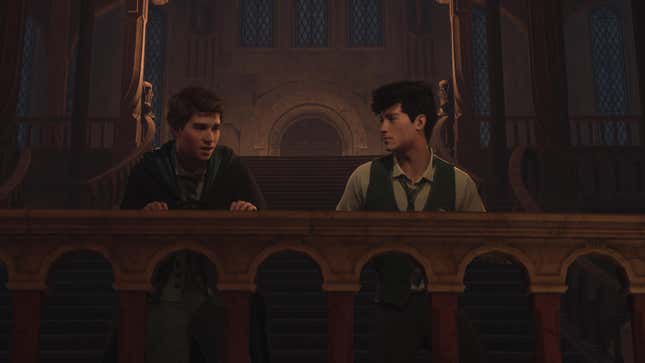
How does Hogwarts Legacy handle Slytherin’s history?
To its credit, Hogwarts Legacy does make a half-hearted attempt to interrogate Slytherin’s legacy. This is primarily done through two Slytherin students the player meets in their school year: Sebastian Sallow and Ominis Gaunt. As a Slytherin myself, I met these two very early on, and my ears immediately perked up when Ominis introduced himself as a descendant of Salazar Slytherin. He admits most of his family doesn’t fall far from Slytherin’s prejudiced tree, but he does.
This becomes a prominent story beat during Sebastian’s personal quest. His sister Anne has been cursed with a life-altering illness, and he’s looking for any way to rid her of her pain—even if that means exploring the Dark Arts and Unforgivable Curses, which are spells that are taboo even to talk about, much less use. Yes, the game allows you to use the biggest no-nos of witchcraft and wizardry, and they are tied to the Slytherin characters’ quests, if you can believe it.
Sebastian’s quest includes pressuring Ominis to give him family secrets about hidden studies within Hogwarts that might contain clues to Slytherin’s work. This eventually leads you to a hidden scriptorium in the castle. It’s here that Ominis’ aunt Noctua died in search of more information about their ancestor. She went looking for confirmation that Salazar Slytherin was more than what history believed him to be, that he wanted his family to become more than just a hateful group of blood purists. But when she got to the scriptorium, she found it was riddled with traps one couldn’t circumvent alone. Instead, one person has to cast the Unforgivable Curse Crucio on someone else. This would subject them to painful torment, but remove obstacles that trapped Noctua. In order to progress, the player has to choose to either cast the curse or have Sebastian cast it on them. This is fucked, but feels in line with just how dismissive Hogwarts Legacy is of the stigma surrounding these curses.
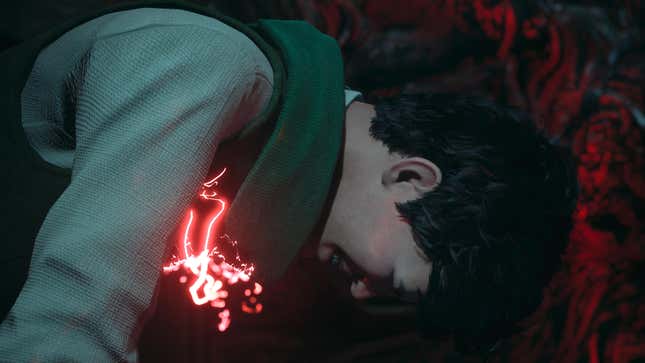
Once the kids reach Salazar Slytherin’s final study, there’s a spellbook waiting for Sebastian, and a note on a table for the player to read. It’s a diary entry from the house founder that confirms, despite what Noctua wanted to believe, he was exactly what history painted him as. He writes of muggle-born witches and wizards and calls them “inept.” He did, in fact, leave the Basilisk waiting in the Chamber of Secrets, hoping it would be reawakened by someone who shares his views and that they will “rid the school” of those he deems unworthy and damaging to his legacy. He sucks.
Despite this, his legacy still stands tall in Hogwarts’ own curriculum and ideals. Even after Slytherin’s posthumous involvement in Voldemort’s reign, Hogwarts still has a house named after him by the time Harry Potter’s children are enrolled in the school. Harry’s son Albus even fears being sorted into Slytherin the same way his father did at the end of Deathly Hallows, only for that fear to be entirely well-founded in the stage play Harry Potter and the Cursed Child.
The Harry Potter universe has a problem with change
If there were ever a time to remove the Slytherin name from Hogwarts, it was when he was spouting prejudiced nonsense, but the next best time would be when it was clear he was involved in the death of students like Myrtle Warren, who died when Voldemort let the Basilisk loose on the school’s muggle-born population. The next, next best time would be when Voldemort was defeated, and his rise to power was easily traced back to Slytherin’s own views—after all, Voldemort is literally called the “Heir of Slytherin.” And yet, Albus Potter is told by his own father to believe that the Slytherin name is a badge of honor, even if it doesn’t align with what the rest of his family got when they were declared brave and sorted into Gryffindor.
But this is the frustrating part of the Harry Potter ethos. It’s intrinsic to the series to believe that the systems in place are not the problem, it’s bad actors within those systems. For this universe, the status quo is the goal. The bar is never raised beyond how the wizarding world was when Harry arrived in it, just set back in place by protagonists after evil-doers temporarily dislodge it.
This narrow worldview is prevalent throughout the entire series. House-elves, an enslaved race that works and suffers under wizardkind, don’t fight for widespread freedom because they want to serve and believe it’s their duty. The aforementioned goblins in Hogwarts Legacy are the villains in the fight against their oppressors and are frequently given a finger-wagging “violence is never the answer” sermon throughout the game. Fantastic Beasts: The Crimes of Grindelwald frames a potential oppressive wizard uprising as merely a political danger through a fixed election—the entire movie is about Dumbledore and his lackeys trying to stop fascism by voting really hard.
The series has shown time and time again that it’s incapable of a radical thought about how people in positions of power inflict pain on others, or how people in power build and maintain systemic oppression—keeping the Slytherin name in all Harry Potter media is just another example of that.
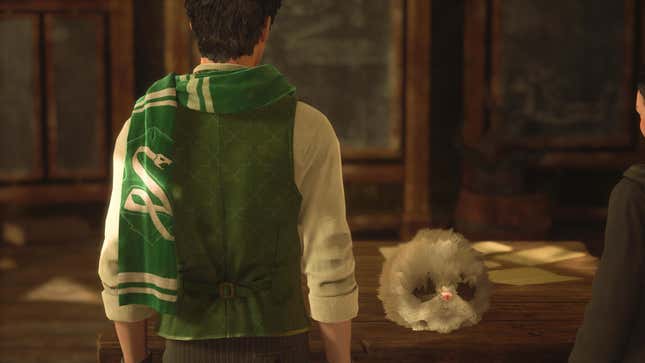
Hogwarts houses and the fandom
What if the Slytherin branding is so ingrained in how people engage with this world that it can’t go away? Whatever your opinion is on the series after Rowling’s loud and bad views have put her and her work in a new light, fans care a lot about their Hogwarts house. People put it in their dating profiles and buy merchandise with its branding. The official Harry Potter store has an entire collection of Slytherin merch, from clothing to kitchenware all bearing the green and silver snake.
TCGPlayer creative copywriter and content curator Drew Knapp, who was a fan of the series growing up (he even had the Slytherin house’s green as a primary color in his wedding), says he views his love of Harry Potter as “positive childhood memories now with a dark edge around them” after Rowling’s rallying against the trans community. He has a Master’s Degree in English, and that education helped him identify the series’ tropes and accept that his love was a “childish infatuation.” While initially drawn to Slytherin for its “darker” framing compared to other houses during what he describes as his Goth phase, Knapp also says Slytherin appealed to his younger self because it represented independence and being “driven by [his] own wants and needs more than anything else.”
“I was able to focus on myself, my ambitions, and pride in myself,” Knapp tells Kotaku. “Slytherin represented how I wanted to be perfectly: Living selfishly for only myself and those closest to me, accepting that my happiest life was one that always put myself first. Some people hear that and are just positively aghast, but Slytherin showed that there were other like-minded people who put their ambition first.”
Not everyone shares that viewpoint of what Slytherin represents, however. Max Barbanell, VP of Creator Partnerships at 4DSight and longtime Harry Potter fan, says he initially was a fan of Harry’s Gryffindor house. However, that changed when he started to find comfort in the way Slytherin put power on a pedestal. He says this helped him cope with a rough home life, and even tied into his own pride in his Jewish heritage and being misunderstood and othered. Though, he admits that “sounds crazy” in light of how Harry Potter’s portrayal of goblins has been called out for its depiction of Jewish caricatures, but asks that other Jewish folks hear him out.
“It represented power, ambition, drive, determination, and persistence,” Barbanell says. “Things that I lacked in my life growing up in a broken home. It was a house with an ancient legacy that had its roots in a language spoken by a solemn few. I think it reminded me of my relationship and pride in my Jewish lineage in a lot of ways. Jews don’t have a great relationship with snakes, biblically speaking they represent sin/temptation, the snake that speaks with Adam and Eve and tricks them into leaving the Garden of Eden. So there are a lot of themes that did not overlap, but I think being generally misunderstood as the ‘evil’ house gave me a sort of compassion for Slytherin that was hard to articulate. I too was called ‘evil’ for no reason, and I too felt misunderstood a lot of the time.”
Barbanell’s Jewish upbringing helped him find confidence and a sense of belonging within the Harry Potter universe, but it also, eventually, caused him to re-examine his childhood love for the series. This introspection was further spurred on by Rowling’s own political views against trans people. He now says his relationship with the franchise has grown much more complicated.
“As you grow older and learn more about life, you can quickly start to see some of the racist tropes baked into the book series as well,” Barbanell says. “I remember the first stab of this came when I was at my synagogue and one of my Sunday school classmates pointed out how the goblins who run the banks in Harry Potter are made to look like racist caricatures of Jews that I had seen all throughout my life. It’s almost like a light bulb went off, and I felt embarrassed I hadn’t seen it before. Maybe I just didn’t want to see it because of how I felt about the series, but it opened my eyes to a lot of the other aggressions along the way and mixed that in with everything she has said on and off Twitter.”
That othering can get messy as it, like much of the Hogwarts house system, sands down nuance in favor of putting students into specific boxes. Negative ideologies and resentments towards others are thrown in the same pile with notions of ambitiously overcoming obstacles, and putting those feelings together can distort ideologies into a kind of fermentative selfishness.
“It gives outsiders a home, those that don’t fit in within the ‘good’ society expressed by Gryffindor sensibilities find fellow outcasts in Slytherin,” Knapp says. “Even better, those outcasts recognize that it’s okay to be selfish, that ambition is positive, and that you can take pride in yourself and your accomplishments without having to worry about the rest of the world.”
For some, the Slytherin house has its own redemption arc within the fiction that makes being sorted into it by Pottermore or Hogwarts Legacy more bearable. Critic and Dallas Morning News Product Manager Britton Peele, who cites the original books as an early example of his parents trusting him to engage with fiction they didn’t like at a glance, was sorted into Slytherin by Pottermore, and says he was initially resistant to it, but when Rowling gave more examples of Slytherin wizards who weren’t tied into pure-blood prejudice, it gave Slytherins something to latch onto that wasn’t a fascist or schoolyard bully.
“Even though I knew the whole process was, at best, a silly little personality quiz, I kind of hated that the official Harry Potter quiz had put me with the bratty kids,” Peele says. “Over time, however, that view changed. To be honest, Rowling herself played a big part in that by the clever decision to proclaim that Merlin was in Slytherin. I hated being compared to characters like Salazar Slytherin, Voldemort, and other bullies, but the idea that I also shared a house with perhaps the most famous wizard in literary history? I liked that idea.”
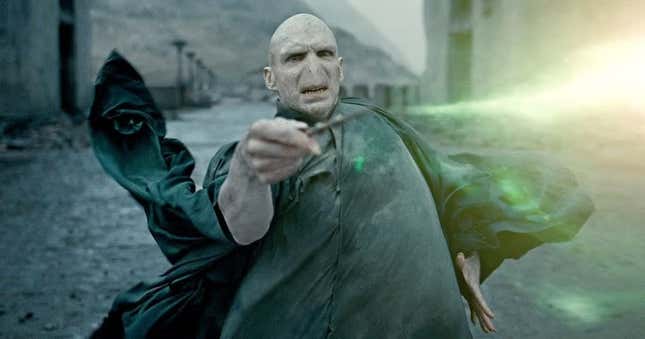
Merlin’s reveal as a Slytherin came in 2014, seven years after Deathly Hallows completed Harry’s story and three years after the final film in the series released. There aren’t many examples of “good” Slytherins in the main Harry Potter series, with Voldemort and his sadistic right-hand woman Bellatrix LeStrange being some of the most prominent characters under the banner. Draco Malfoy and Professor Snape both have redemption arcs, sure, but by and large Slytherin = bad.
Even so, fans were drawn to Slytherin despite it being a dumping ground for villains and an origin point for pureblood supremacy. While there likely are some fans whose draw to the house is questionable, Peele hypothesizes that it has the same appeal as any piece of media with a “dark” path.
“I think at least a good chunk of Slytherin members are fans of the house for the same reason people are fans of the Dark Side of the Force [in Star Wars] or enjoy playing evil characters in video games,” Peele says. “I can’t personally relate to that, but they seem to find it fun.”
For some, those dark origins serve as an interesting hypothetical. Can someone within Slytherin fight against those perceptions of what it means to be part of the house? Sure, you can argue its core tenet is ambition but its history is written in muggle-born wizards and witches’ blood.
“Personally, I found some degree of enjoyment in being ‘not like the other Slytherins,’” Peele says. “If I were the type of person to roleplay, I’d probably be someone who was either trying to do good within a messed up system, or I would try to dismantle the villainous organization from the inside.”
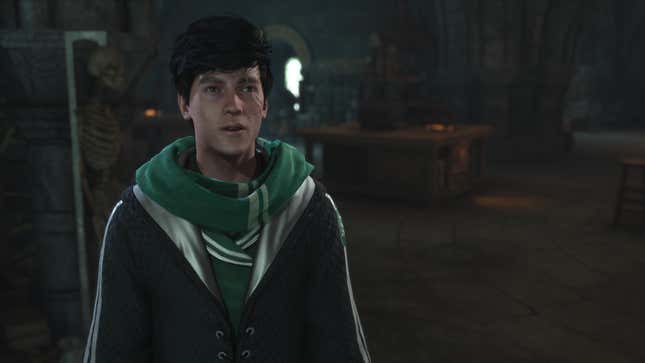
Is there a Harry Potter future without Slytherin?
Despite shifts in the cultural consciousness, Warner Bros. is still doubling down on Harry Potter as a franchise, with recent reports of a possible HBO Max series taking another stab at adapting the books. It’s odd to consider, but Hogwarts Legacy is one of the few examples of a Harry Potter story that isn’t about people that came into Harry’s field of view. For all the posturing that this universe is vast and full of stories to be told, it feels like the creatives involved are only just now beginning to branch out beyond The Boy Who Lived or his headmaster, but as long as these stories keep exploring the history of this world rather than its future, it seems unlikely we’ll reach Harry Potter’s Last Jedi moment where someone really questions everything that’s come before.
But should that day come, is there a day when someone asks if the Slytherin house should be abolished? Or at the very least, rebranded? It’s a possibility, but Knapp thinks it’s unlikely as long as Rowling is steering the ship.
“I think it could be done and would be better in a post-Voldemort world where the evils of Wizard society are recognized and rectified,” Knapp says. “Unfortunately, the author only cares about the return to the status quo, so it won’t be coming from her.”
Conversely, Barbanell says Slytherin’s existence as a cultural artifact is meaningful in the grander universe, and thinks there’s potential for it to grow rather than go away.
“I am not for abolishing the house altogether,” Barbanell says. “I think there could be a world where Slytherin house can reconcile with its past and start working towards repairing its relationships with those who have been hurt at the hands of Salazar’s pure-blood bullshit. I think it would be cool to see the house renamed, but as a story device, I think that its existence is important.”
For Peele, Rowling’s involvement would make such a change unlikely, but he would like to see her one day be willing to hear criticisms around Harry Potter and move the universe forward. And Slytherin is only one of many pillars of this universe that’s worth reexamining.
“I think there is another world in which an author—maybe not Rowling herself, though it would be nice—would hear the criticisms of the Wizarding World, examine them through a more modern lens, and tell a story within that world that is more redemptive and corrective,” Peele says. “Reforming the Slytherin house would be a start, but I don’t think it could be the end. I am of the personal—maybe controversial—opinion that there is still a lot of good that can be found in the Harry Potter series, believing that even flawed works can be used for good. But it’s better when the author of those worlds is part of that work.”
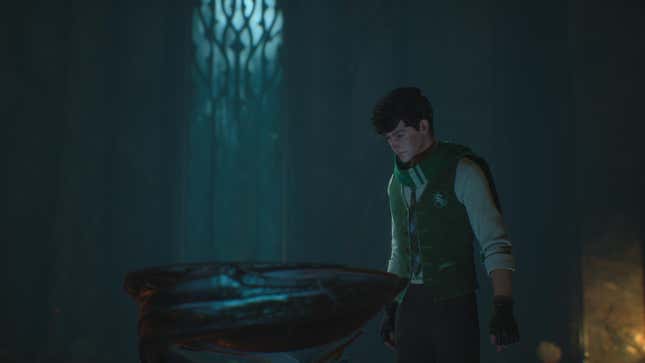
There’s a belief that, despite Rowling’s views and the harm she has perpetuated, the Harry Potter universe can be reclaimed by the fans who grew up with it. To raise the notion of “death of the author” when the author is still profiting from game sales, movie ticket purchases, and every book sold is a foolish misunderstanding of the concept. But it does raise the questions: “What is the universe we’re trying to salvage here?”
If, hypothetically, there’s a version of events where the Wizarding World is freed from Rowling’s clutches and is in the hands of people more accepting of others, we’re still left holding something that believes that none of the systems or structures it has in place are a problem.
When I was a child, I didn’t think much about what it meant to be a Slytherin. When I was a teenager, I thought it validated my ambition. As an adult, I know I can have that validation without it having to be named after the origin point for everything destructive in this setting. The Harry Potter universe is Rowling’s creation, and if there is a future where it exists without her (or with a version of her that is on the right side of history), I hope it has the courage to leave the rotten foundations she built this world upon behind.

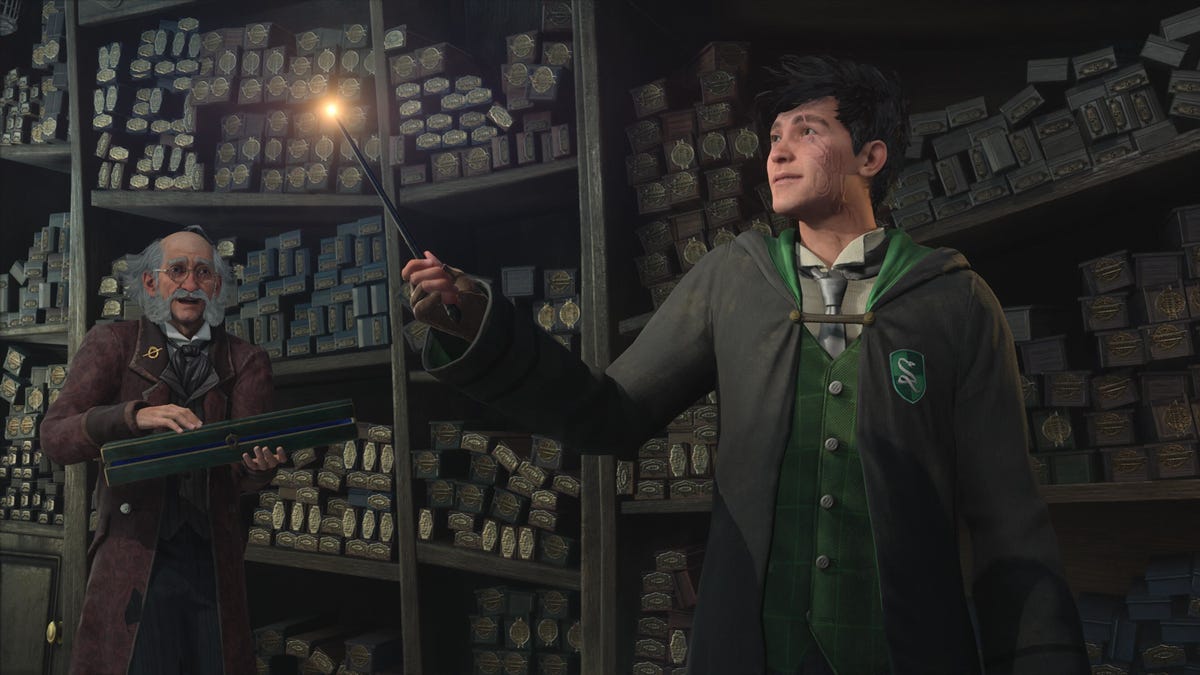
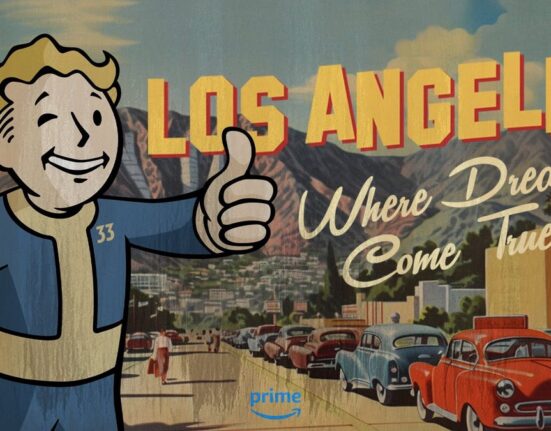

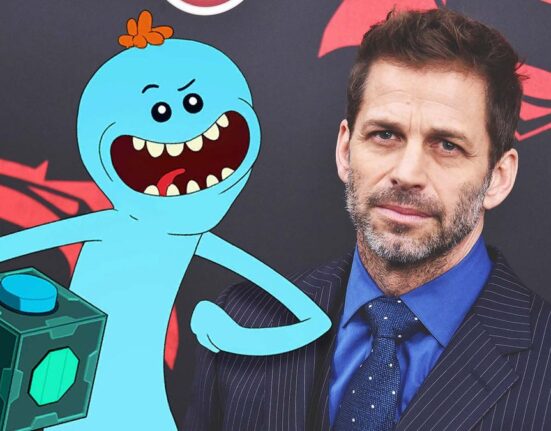
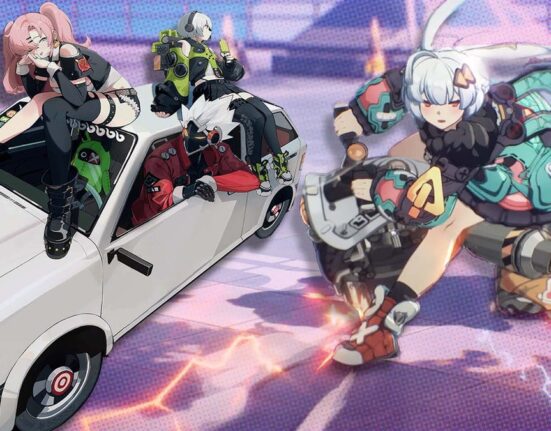
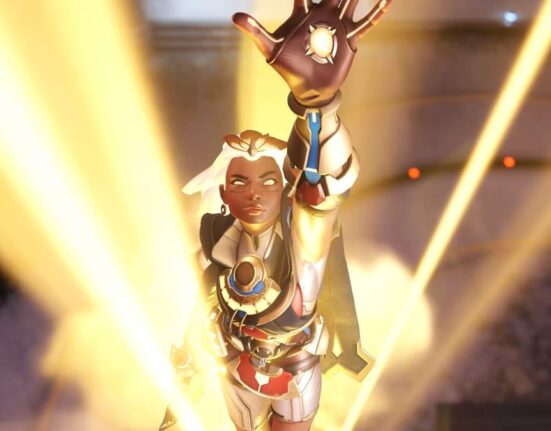
Leave feedback about this